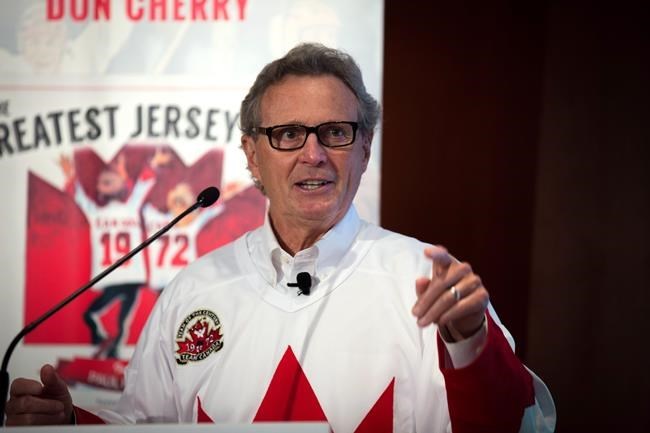TORONTO — If retired hockey great Paul Henderson were invited to the White House after winning a championship, he'd look to his teammate wearing the 'C' to make the call on attendance plans.
"Well I was a team player. I think if the captain said we were going — it may not be my choice — but if the captain says we're going, I'd probably go," Henderson said Thursday. "If the captain said we weren't going to go, then I probably wouldn't go."
Much criticism has been volleyed at the reigning Stanley Cup champion Pittsburgh Penguins in recent days for their decision to attend the traditional ceremony with the U.S. president. Captain Sidney Crosby has also caught some heat for supporting his team's choice.
It's one of many hot-button issues permeating leagues around the continent of late with sports, politics and protests forming a heated stew that's showing no signs of abating.
President Donald Trump hasn't minced words with his criticism of the NFL, players and team owners for athletes kneeling during the national anthem before games. The NBA champion Golden State Warriors were invited to the White House, but Trump rescinded the invitation after star guard Stephen Curry indicated he wouldn't attend.
Protesting during the anthem has become a divisive issue since then-San Francisco quarterback Colin Kaepernick started the movement last year. He refused to stand to protest police brutality and racial inequality in the United States.
San Jose Sharks forward Joel Ward — one of about 30 black players in the NHL — had considered a protest but said Thursday that he will not kneel during the anthem.
The intersection of sports and politics was a talking point as Henderson held an availability after participating in a children's book launch at the Hockey Hall of Fame.
"We live in a society where there's freedom of choice and so people make choices about things," Henderson said. "So a person can do what they want to do and that's the great thing about it. I refuse to be critical of either side in the situation because I think if you sit down and talk to individuals, especially black people, they will tell you why they feel so passionate about it.
"I can understand that there's respect for the flag. So to me, it's do what you want to do. It's not going to bother me one way or the other."
Henderson's former teammate, Ron Ellis, won a Cup with the Toronto Maple Leafs in 1967, well before championship teams were invited to national capitals.
"It's a very difficult situation that has developed here, I think that the NHL is a little different," Ellis said. "The NHL is made up of a lot of international players. The majority of the players are not American players. In my mind, I don't have a problem with (the Penguins' decision).
"They worked very hard to win that Cup and if that's one way that they're going to celebrate it, I'm certainly not going to judge them."
Henderson, who spent 13 seasons in the NHL, is best known for leading Canada to victory over the Soviet Union in 1972.
The 74-year-old native of Kincardine, Ont., said that political issues in sport are a part of life today, fuelled in part by social media.
"We've got an opinion about everything and that's the wonderful thing about a democracy," said Henderson, speaking on the 45th anniversary of his famous Game 8 goal that clinched the Summit Series for Canada. "You can express your opinion. We just need to be able to respect why the other people say it, I think. I'm not going to take sides on either side, but I really appreciate the fact that they can do it.
"But I don't think we need to get bent out of shape out of some trivial things. I mean we're looking at maybe a nuclear war. I'm a heck of a lot more concerned about a nuclear war than if we should kneel or not kneel."
———
With files from The Associated Press. Follow @GregoryStrongCP on Twitter.
Gregory Strong, The Canadian Press
